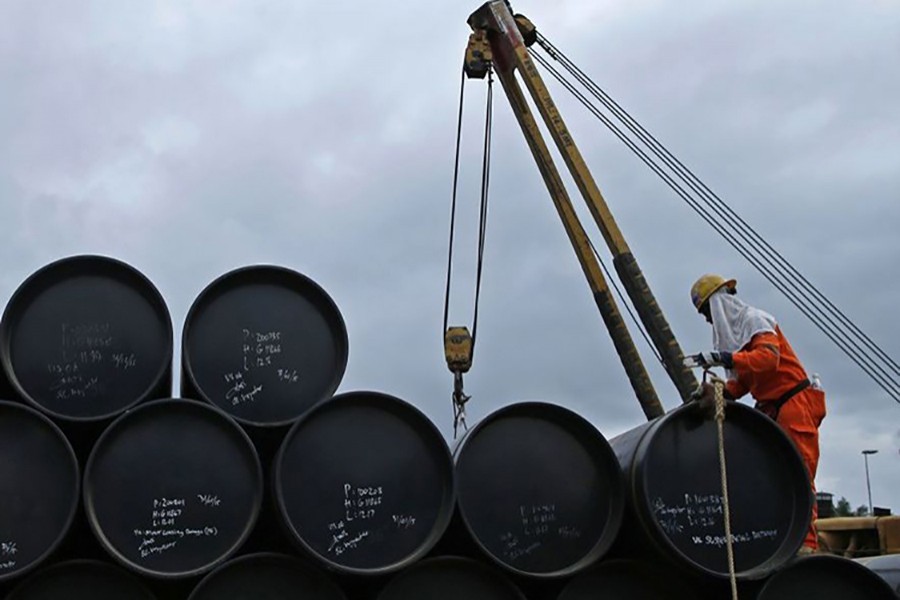
Published :
Updated :

The government has reduced the service charges on the import of high-sulfur fuel oil (HFO), also known as furnace oil, to 5.0 per cent from previous 9.0 per cent to lower the electricity generation costs.
State-run Bangladesh Power Development Board (BPDB) sent letters to all 48 privately-owned power companies, who have been importing HFO to generate electricity in their power plants, in this regard, said sources. The move is expected to save the cash-starved BPDB several billion taka annually, market insiders said.
"It is hereby informed that the service charge for fuel oil (HFO) importation by HFO-based power plant companies has been fixed at 5 per cent instead of the previous 9 per cent. This matter is being informed to all HFO-based power plant companies that have contracts with BPDB," says the letter.
In 2011, the government allowed a few privately-owned power plant owners to import HFO. Later, most of the private power plant operators were permitted to import HFO with an additional 9.0 per cent service charge.
This additional charge was excessive as the total transport cost, tax and losses were not more than 5.0 per cent, the White Paper on the State of Bangladesh Economy revealed in December 2024.
The service charge depends on the volume of HFO imports and its price, said a senior BPDB official. The BPDB's saving would be around Tk 2.0 billion from February to June this year if the private sector imports around 700,000 tonnes of HFO, he added.
The previous authoritarian government had initiated a drive to install a significant number of oil-fired rental and quick-rental power plants under private sector in 2009 as a short-term solution to the country's nagging electricity crisis. Additionally, the government awarded private-sector sponsors contracts for several gas-fired rental power plants.
Most of these power plants were awarded on the basis of unsolicited offers under the now-defunct Speedy Supply of Power and Energy (Special Provision) Act 2010, which had a provision of immunity to those involved in the quick-fix remedies.
The previous government allowed the private entrepreneurs to import furnace oil to run their power plants with a 9.0 per cent service charge along with import costs as an incentive.
Alongside rental power plants, the government also had a plan to install a number of large peaking power plants as 'mid-term' and 'long-term' measures. The Power Division had also planned to phase out rental and quick-rental power plants after expiry of their initial tenures and bring down the electricity tariffs as well.
But instead of phasing out expensive rental and quick-rental power plants, the previous government continued to extend their contracts and installed more such plants maintaining the capacity-payment provision. In consequence, instead of reducing electricity tariffs as per Awami League government's initial plan, tariffs for retail consumers were hiked several times.
"The reduction in service charge will discourage the private sector to import HFO," President of Bangladesh Independent Power Producers' Association (BIPPA) KM Rezaul Hasanat told the FE. He claimed that due to delayed payments by the BPDB, the private sector costs for importing HFO have exceeded 12 per cent.
Mr Hasanat, however, said that if the BPDB makes timely payment-within 45 days of importing HFO-a 5.0 to 6.0 per cent service charge would be reasonable.
Talking to the FE, energy adviser of the Consumers Association of Bangladesh (CAB) Prof. M Shamsul Alam, lambasted the government's approach, alleging that it allows a section of unscrupulous power entrepreneurs to make hefty profits by keeping HFO-fired power plant contracts intact.
"The government should cancel all the contracts with HFO-fired power plants as these are high-cost ones. Currently, the government has sufficient low-cost coal-fired and gas-fired power plants to generate electricity. Electricity generation costs would be lower. Even electricity could be generated after importing expensive liquefied natural gas (LNG) instead of HFO," he said
Electricity tariffs continued to rise over the past several years as an outcome of the government's 'wrong' policy, said the CAB adviser, adding that it is not an ideal policy at all.
Azizjst@yahoo.com


 For all latest news, follow The Financial Express Google News channel.
For all latest news, follow The Financial Express Google News channel.